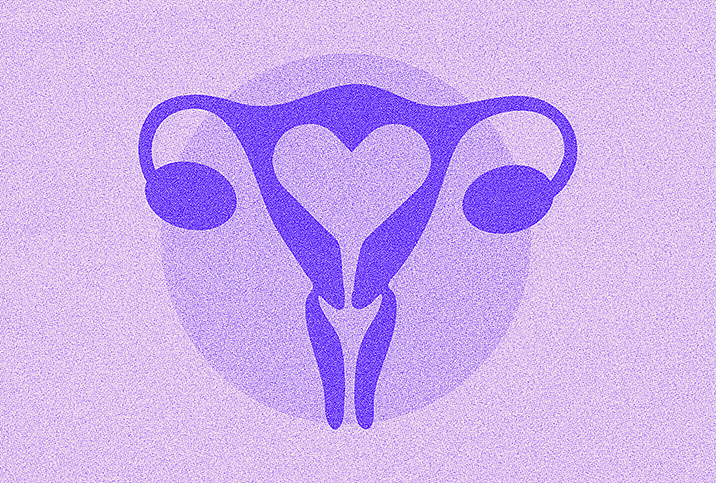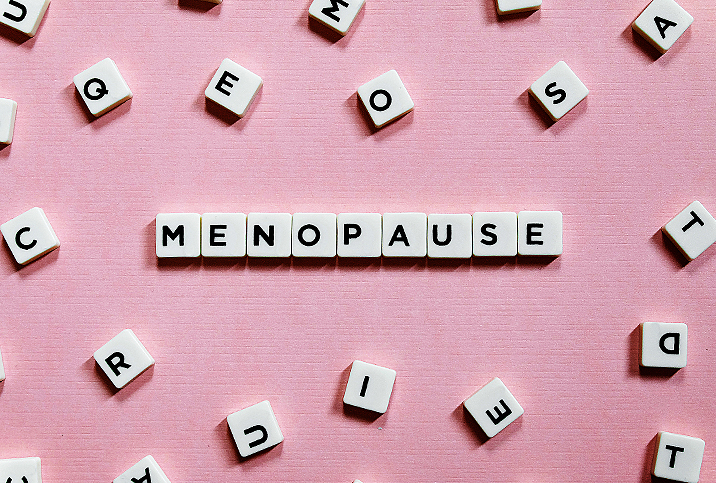It's Time We Celebrate Menopause Instead of Stigmatizing It

The term menopause was first coined by a French physician named Charles Pierre Louis De Gardanne in an 1821 article titled, "Menopause: The Critical Age of Women." Medical interest in the topic grew in the mid-19th century, eventually resulting in the development of hormone replacement therapy (HRT) in 1938 and the creation of the International Menopause Society in the 1970s.
Despite the common nature of menopause, the experience is often stigmatized due to misunderstanding, a false sense of shame and a patriarchal society. Thankfully, those stigmas are starting to break down.
Menopause around the world
It's been reported that symptoms experienced by people going through menopause can vary widely in different parts of the world. In the West, vasomotor symptoms (hot flashes and night sweats) are most common, whereas in Japan and India, poor vision and shoulder pain are common, according to a 2002 study published in the Bulletin of the Indian Institute of History of Medicine.
In addition to symptomology, there are variations in how menopause is conceptualized in different cultures. In Western culture, medicalized words with negative connotations, such as "fertility failure" and "ovarian failure," are used to describe menopause, which reinforces the notion of menopause as a disease requiring treatment rather than a normal life transition, according to a 2019 review published in the International Journal of Women's Health. Similarly, menopause is also perceived negatively in Arab culture, primarily due to the loss of fertility, which is highly valued, and is sometimes described as a "desperate age."
In contrast, in Japan and China, menopause is readily welcomed as the end of menstruation, and hot flashes are not associated with feelings of embarrassment. Interestingly, a 2020 article published in the Journal of Cross-Cultural Gerontology stated women in both countries report a lower prevalence of hot flashes than women in the United States and Canada, suggesting that conceptions of menopause and the experience of symptoms may be linked.
A positive shift in perception
Fortunately, there are signs that perceptions in the West are starting to shift.
"Over the last couple of years, menopause has become a topic which people are slowly becoming more comfortable talking about," said Samantha Wild, M.R.C.G.P., women's health clinical lead and general practitioner at Bupa Health Clinics, an international company headquartered in London. "This is largely [due] to media campaigns highlighting and breaking down the stigma and signposting people to support."
The result is that women experiencing symptoms feel like they can come forward and ask for help, which is particularly important given the length of the menopausal transition.
"Women are likely to spend over half their life in perimenopause and [post]menopause, and patients and colleagues are starting to talk about the climacteric as a treatable condition, not something to endure in silence," said Kimberly Larson-Ohlsen, M.D., assistant professor in gynecology, integrative medicine and acupuncture at the University of Colorado in Denver. "Knowledge is power and can reduce suffering."
More public discussion of menopause also means an increase in the resources available for people going through this life transition.
"It has led to organizations looking for more ways to support women experiencing menopause within the workplace and encouraging them to open up about symptoms and how it is impacting them at work," Wild said.
The medical community can also be influential in reinforcing positive perceptions of menopause.
"Healthcare professionals can play their part in helping to break the taboo by talking about menopause more openly with women to help them understand their symptoms, both at the point of going through them and before," Wild explained. "It can also be useful to share leaflets, symptom trackers and any relevant webinars so that they can learn in their own time."
Healthy ways to approach menopause
Therapy can be an important tool to shift a person's perceptions of their menopausal transition in a healthy direction.
"In cognitive behavioral therapy, we often look for a more balanced perspective on things," said Joanna Gray, founder, coach and curator at Making Your Way, a wellness organization in Hastings, England.
"Rather than seeing menopause as a negative or positive thing, we can view it simply as a change," Gray continued. "We can then begin to consider how we would like to approach this period of change. What support do we have available to us, what are our strengths and qualities, what information do we need to collate to help us make the best choices?"
This approach can mean menopause becomes a catalyst for positive changes.
"As menopause usually occurs during midlife, it can be around this time that women start to focus on themselves again after a period of caring for children and/or older relatives," Gray said. "This period in our lives can lend itself really well to some self-discovery or rediscovery, as well as providing an opportunity to reflect and consider how we want to move forwards into this next chapter."
Continuing the discussion and building understanding
If you're struggling with adapting to menopause, you're not alone.
"Understandably, approaching and going through menopause may be a scary prospect," Wild said. "Your body goes through lots of changes during this time and, as it affects everyone differently, it can be difficult to know what to expect."
Menopause is part of the natural aging process—its unavoidable, but there are ways to alleviate its symptoms. Certain vitamins and minerals have been shown to help improve side effects, and many women may benefit from supplements. Giddy Menopause Support vitamins are specially formulated to support the body with hormone-balancing supplements, like panax ginseng, ashwagandha, and diindolylmethane to maintain a healthy hormonal balance.
Unfortunately, many people still feel unable to talk about their symptoms in certain settings.
"When it comes to the workplace, our research has found that 33 percent of women are embarrassed to talk about their symptoms with their employer, and over 70 percent have no idea what support is available to them at work," Wild explained. "Sadly, our research has also found that nearly 1 million women have left their jobs because of their menopausal symptoms."
This highlights why continuing the discussion of menopause is so important.
"Even though menopause is something that half of the population will go through, there's still so much stigma around talking about it," Wild said. "We can all play our part in helping to normalize speaking about menopause—whether it's to our friends, family, employer or health professional—to help women feel confident enough to seek support."
As research on non-Western cultures illustrates, menopause can be embraced and even celebrated.
"We need to conceptualize menopause as an evolutionary adaptation and dispel the false belief that women lose value once they are no longer able to reproduce," Larson-Ohlsen said. "[We need to see] that menopause is a transition, not an end, and that women who are menopausal have a great deal to continue to offer to society. Menopause is all about perspective."




















